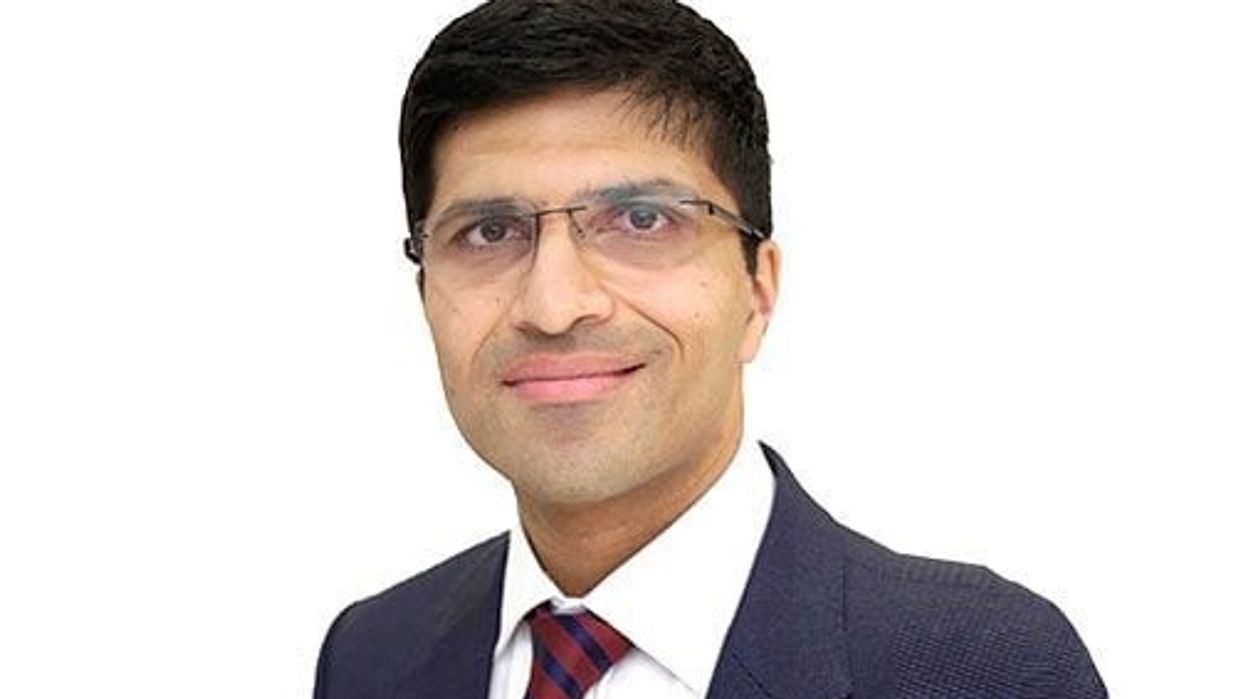THE chief of Britain's financial watchdog has defended its plans for retail customer protection via its Consumer Duty rules, adding that he is aware of the impact of regulation on banking business models and margins.
Financial Conduct Authority CEO, Nikhil Rathi, added that the regulator "would not stand in the way" of moves to end Britain's free banking model if lenders chose to offset rising regulation costs by charging fees for holding accounts.
"We have always been clear that if business models need to change in response to competition and a changing market, we would not stand in the way," he said while speaking at an event last week.
"...the 'free-if-in-credit' banking model in the UK is a market and commercial decision not a regulatory requirement, other than for basic bank accounts," Rathi added, pointing to fee-based approaches in other countries.
Consumer interest groups were critical of Rathi's remarks, with one describing the potential reform as "extremely concerning".
"Banks' margins are hardly being squeezed, with lenders enjoying record profits driven by higher interest rates which they've withheld from depositors," Simon Youel, head of policy and advocacy at Positive Money, said.
"It is bad enough that banks are cutting access to in-person services with branch closures - cutting access to free current accounts as well would be another big slap in the face to the public," he said.
Rathi, who has led the FCA since October 2020, said the application of the Consumer Duty could also cut compensation levies imposed on financial firms.
The regulator would be "pragmatic" when enforcing those rules, tackling breaches that pose the greatest risk of harm but looking "favourably on firms that have made reasonable efforts to address concerns".
"We're not setting out to trip firms up by going after technical breaches," he said, underscoring the cash savings market and insurance products such as premium finance and so-called guaranteed asset protection insurance as particular areas of focus.
Some of Britain's biggest banks have already set aside hundreds of millions of pounds to cover possible redress linked to the FCA's probe. Some analysts estimate the banks' potential costs could rise as high as 2 billion pounds ($2.6 billion).
"The more quickly and comprehensively firms cooperate with requests for data, the sooner we can conclude our work," he said.
Rathi also said it was not the regulator's instinct to seek immediate regulation of advances in artificial intelligence (AI) in financial services.
Competitive motor finance
According to Rathi, the FCA needs to maintain a functioning, accessible and competitive motor finance market in a country where 78 per cent of households own a car.
"We are not a price regulator and we will not stand in the way of well-run businesses making profits in the face of effective competition. With motor finance, because of the impact on firms, as well as consumers, we want to clarify matters in a more condensed time frame and on a basis that is robust and fair," he said.
The regulator said that the success of this endeavour depends on the complete cooperation of firms and their prompt and comprehensive provision of data, along with the potential pace of court proceedings.
He added that the FCA was aiming to "achieve earlier clarity than previous redress events" on the scale of consumer harm from possible overcharging in motor finance.
Pensions industry reform
While speaking at the JP Morgan Pensions and Savings Symposium on Thursday (14), Rathi called for reforms in the pensions industry.
“Most of us are still not saving enough or engaging early enough with our pensions’ investments. Whatever the route to improving this, and this is challenging as we come through a cost of living squeeze, addressing the adequacy of savings is vital," he pointed out.
According to reports, gold-plated defined-benefit schemes, many of which are no longer available for future benefits and are being replaced by less generous defined-contribution plans, are on the decline.
Even though auto-enrolment has been successful, concerns remain about the number of people who only contribute the minimum required and those who don't have a workplace pension at all.
There are worries about some pension schemes not performing well in their investments. Currently, only 5 percent of UK pension money is invested in the country's economy, which means local companies miss out on significant funding.
Rathi said that regulators should not dictate investment strategies but aim to eliminate inappropriate obstacles. He mentioned that the FCA, in collaboration with the Bank of England’s Prudential Regulation Authority and The Pensions Regulator, would address potential risks and facilitate a more favorable environment for UK investment.
“The defined-contribution system expects consumers to take greater personal responsibility. Pensions is, however, a market marked by inertia, a lack of consumer understanding and ridden by fear. Most people never switch funds, many do not take timely advice in the years or decades before retirement and half admit to being totally disengaged when it comes to pensions," he added.
(with inputs from Reuters)





